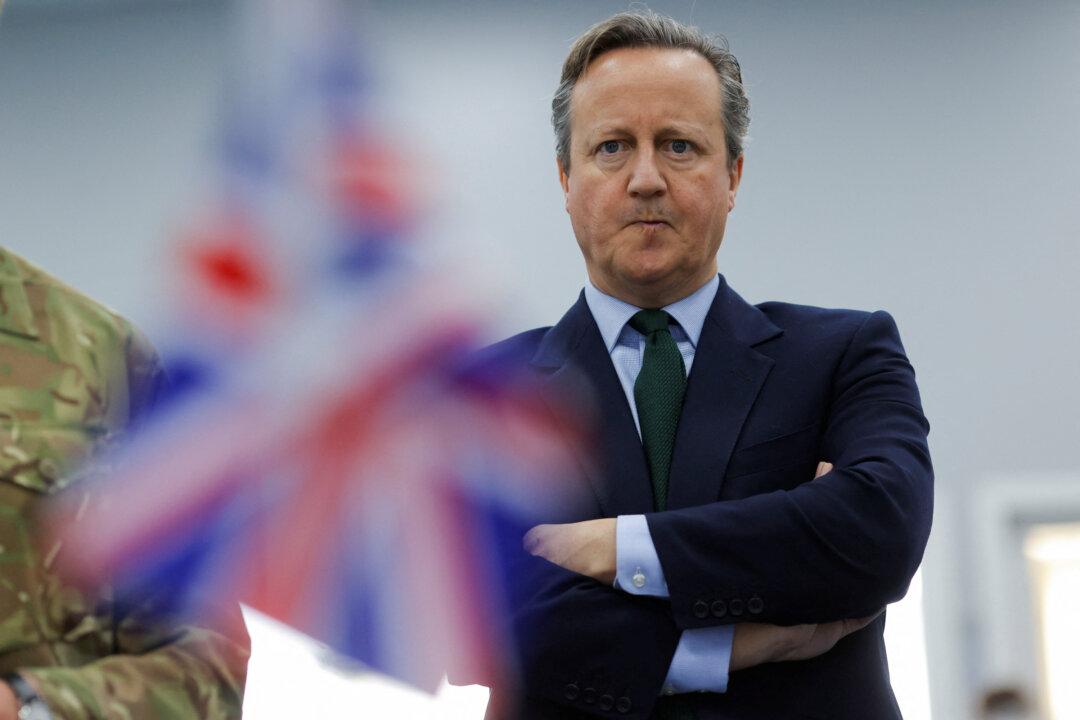The UK is prepared to strike Houthi rebels in Yemen again if they keep attacking ships in the Red Sea, Lord David Cameron hinted on Saturday.
The foreign secretary said the UK will “always defend the freedom of navigation” and “will be prepared to back words with actions.”





